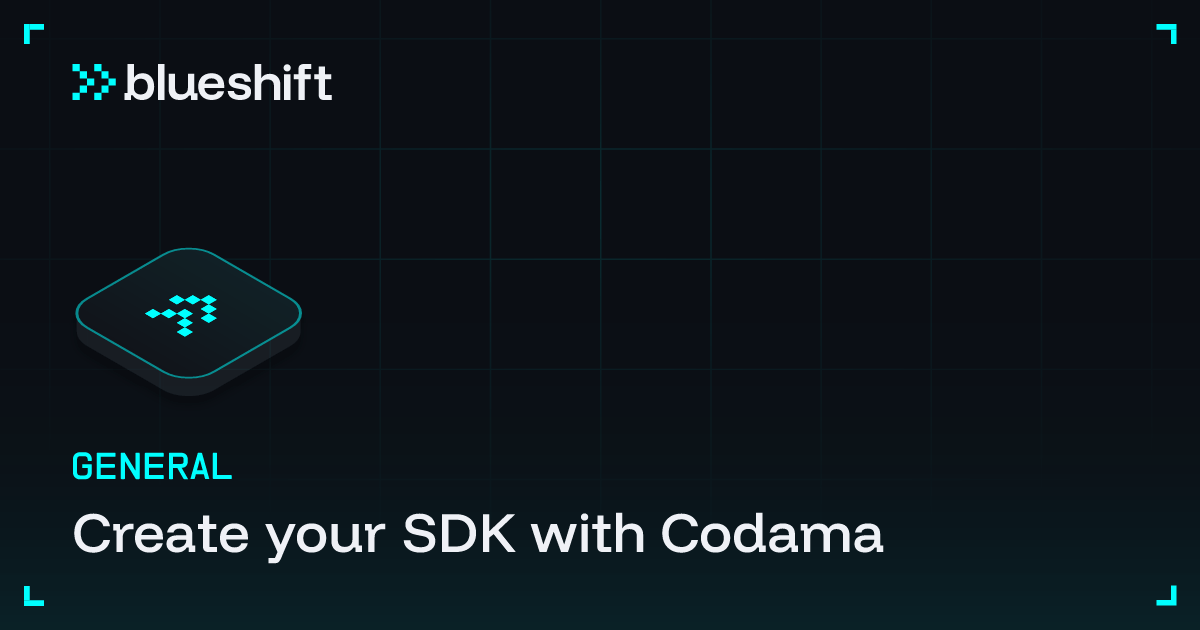Codama 101

Codama is the fastest way to generate type-safe clients for Solana programs across multiple languages and frameworks, create CLI tools, and provide rich program information to explorers.
Everything begins with the Codama IDL—a standardized format that describes any Solana program and serves as the foundation for generating all program-related tooling.
From a single Codama IDL, you can generate:
Type-safe clients for JavaScript, Rust, Python, and more
CLI tools for interacting with your program
Documentation that stays synchronized with your code
Explorer integrations that understand your program's structure
Testing utilities that know your program's interface
Codama eliminates the tedious work of maintaining clients across multiple languages and frameworks.
Instead of manually writing and updating client code every time your program changes, you describe your program once in the Codama IDL format, apply any necessary transformations using visitors, and generate everything else automatically
Core Concepts
Codama's architecture revolves around three fundamental concepts: Nodes, Visitors and Renderers.
Nodes
Everything in Codama is represented as a tree of nodes. A node is a structured data object that describes one specific aspect of your Solana program.
Your entire program becomes a hierarchical tree starting with a RootNode at the top.
There are different type of nodes:
Structure Nodes (
RootNode,ProgramNode,AccountNode,InstructionNode, ...): Define the skeleton of your programType Nodes (
NumberTypeNode,StringTypeNode,StructTypeNode,ArrayTypeNode): Describe data structures and field typesValue Nodes (
NumberValueNode,StringValueNode): Represent default values and constants
Visitors
Visitors are functions that traverse your node tree to either analyze or transform it.
They implement the visitor pattern by "visiting" each node in your tree and performing operations on them.
There are 2 types of visitors:
Analysis Visitors (read-only): Traverse nodes and return information using
codama.accept()Transformation Visitors: Traverse nodes and return a modified tree using
codama.update()
Renderers
Renderers are visitor functions that transform your Codama IDL into client code for specific programming languages.
Each renderer traverses the IDL nodes and generates the appropriate code files, types, and interfaces for its target language.
To use a renderer, provide the base directory where generated files should be saved, along with optional configuration to customize the output:
import { createFromRoot, programNode, rootNode } from 'codama';
import { renderJavaScriptVisitor, renderRustVisitor } from '@codama/renderers';
// Create or import your Codama IDL.
const codama = createFromRoot(rootNode(programNode({ ... })));
// Render SDKs from your IDL.
codama.accept(renderJavaScriptVisitor('clients/js/src/generated', { ... }));
codama.accept(renderRustVisitor('clients/rust/src/generated', { ... }));Installation
Install the core Codama package using your preferred package manager:
pnpm install codamaThis includes both @codama/visitors and @codama/nodes packages, providing everything you need to create and manipulate IDLs.
To generate client code, you'll also need the renderers package:
pnpm install codama @codama/renderersThe renderers package is distributed separately because it requires filesystem access and only works in Node.js environments, while the core Codama library runs everywhere (Node.js, browsers, etc.).
Set up
Codama provides a command-line interface (CLI) that simplifies working with IDLs and generating client code. The CLI handles configuration management and script execution, making it easy to set up automated workflows.
Install the CLI package and initialize your project:
pnpm install @codama/cli
pnpm codama initThe init command will prompt you for:
The path to your IDL file (supports both Codama and Anchor IDLs)
Script presets you want to use (JavaScript, Rust, etc.)
This creates a configuration file that defines your IDL source and generation scripts and looks like this:
{
"idl": "path/to/your/idl",
"before": [
"./custom-transforms.js",
{ "from": "@codama/visitors#removeTypes", "args": [["internal"]] }
],
"scripts": {
"js": [
{ "from": "@codama/renderers-js", "args": ["clients/js/src"] }
],
"rust": [
{ "from": "@codama/renderers-rust", "args": ["clients/rust/src"] }
]
}
}You can execute your configured scripts using the run command:
pnpm codama run # Run preparation steps only
pnpm codama run js rust # Run specific language generators
pnpm codama run --all # Run all configured scriptsWithout CLI
If you don't want to use the CLI you can create a codama.ts file in your repository, specify your Codama IDL logic (imports, visitors and renderers) and then run:
pnpx tsx codama.ts